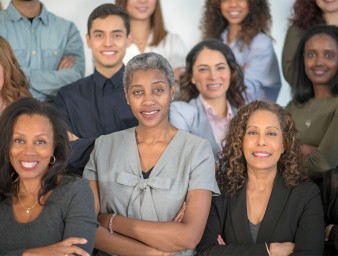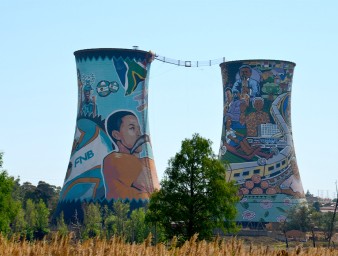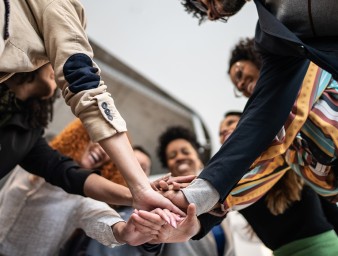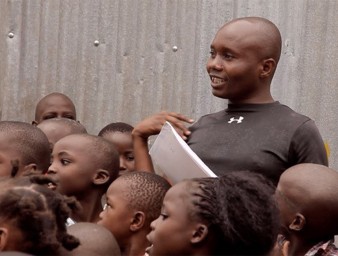Political will and collective action needed in fight against COVID-19
18 October 2021
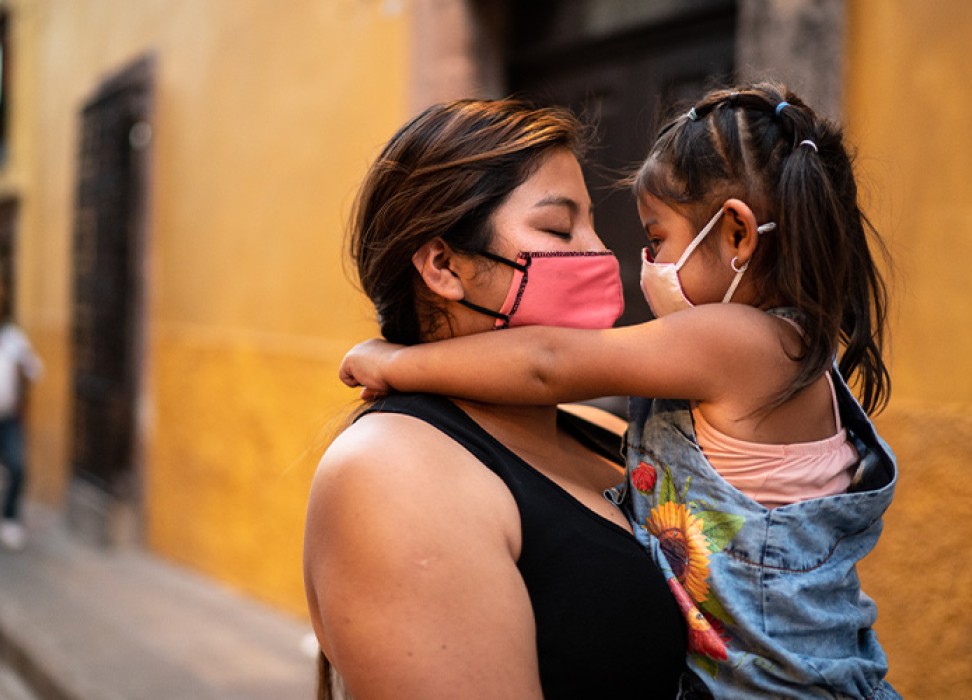
The COVID-19 pandemic has “shown us both how far we can go together – and how deep we can sink alone,” according to UN Human Rights High Commissioner Michelle Bachelet, speaking during her opening statement to the 2021 Social Forum.
This year’s Social Forum focused on the pandemic and its human rights consequences.
Bringing together some 40 speakers from 30 countries across different regions, it highlighted how longstanding social and economic inequalities within and between countries have only deepened over the last 18 months.
The panellists’ common messages were clear: a global problem requires a global solution.
A range of issues were addressed: among others, the pandemic’s impact on vulnerable and marginalised groups; education, climate change, and the lack of access of the world’s poor to COVID-19 vaccines and treatments.
COVID-19 healthcare: Unless everyone is safe, no one is safe
Unequal access to COVID-19 vaccines continues to widen the gap between rich and poor, outlined Bachelet, putting millions of lives in danger. More than 80% of doses administered around the world have gone to high and upper-middle income countries, even though they account for less than half of the world’s population.
For Abdul-Karim Hashim Mostafa, Chairperson-Rapporteur of the Social Forum, ensuring access to COVID-19 vaccines is not only the right thing to do, it is in the interest of us all.
“Unless everyone is safe, no one is safe,” said Mostafa. “A well-coordinated global approach to the development and distribution of vaccines based on solidarity of all nations and people is the most effective, sustainable, and moral response to the crisis.”
On the issue of vaccine ‘nationalism’ by rich countries, Obiora Chinedu Okafor, the UN Independent Expert on human rights and international solidarity, called for these countries to recommit to COVAX, the COVID-19 Vaccine Global Access Facility. While commending many countries for contributing large amounts of money and vaccines to COVAX, “they undermine its effectiveness when they simultaneously engage in vaccine hoarding.”
Jomo Kwame Sundaram,Senior Adviser at the Khazanah Research Institute in Malaysia, added that the divide between the global North and South is worsening, urging countries to adopt a ‘whole of society’ approach to recover from the pandemic and achieve sustainable development.
Vaccine policies: a fine balance between individual freedom and collective rights
COVID-19 has had an impact on civil rights the world over, said panelists. One contentious issue in many countries remains the use of so-called vaccine policies or regulations put in place to ensure certain members of the population are vaccinated, for example restaurant staff or workers in aged care. Health ‘passports’ for the general population, which indicate vaccination and / or COVID-19 status, are also commonplace.
For Kasari Govender, Human Rights Commissioner of British Columbia in Canada, it is important to find the balance between respect for individual freedoms and the need to promote the rights of the collective.
Govender raised the multiple appeals against such policies, with people citing the right to bodily autonomy.
Yet, what is missing from their argument, she said, is that making our communities safer through vaccines and related policies is the primary way to protect the bodily autonomy of those at most risk.
“Upholding individual rights while acting collectively to protect one another has been a challenge throughout the pandemic,” Govender said. “We must maintain a careful balance between the rights of people who have not received the COVID-19 vaccine due to disability or other protected ground of discrimination, and individual and collective rights to health and safety.”
COVID-19, climate change, and the importance of youth participation
Panellists at the Forum pointed out that the pandemic has exacerbated the already devastating effects of the climate crisis, and a more collective response is required.
Keynote speaker Nafesha Richardson, climate activist and founder of Spark SVG, called on governments to integrate youth in a more meaningful way in their COVID-19 recovery approaches, and in their policies to take action on the climate crisis.
“I urge governments and other institutions to make permanent legal provisions for dynamic youth inclusion,” said Richardson.
Richardson highlighted the need not only for youth inclusion, but for capacity building to improve youth engagement as well as an increase in funding for their activities.
“It is youth that will have to answer to the next generation, and you must take this opportunity to not repeat the errors of the past,” she said.
COVID-19 and discrimination
Racial and ethnic discrimination has escalated amidst the pandemic leaving marginalised groups even more vulnerable.
Racism, homophobia, transphobia, ableism, classism and extreme social insecurity are also negatively affecting people’s mental health, “because of the structural and systemic oppression that they continue to live under every day,” said Tlaleng Mofokeng, Special Rapporteur on the right to health.
Dominique Day, Chairperson of the Working Group of Experts on People of African Descent said that the pandemic has “laid bare racial disparities and discrimination,” exacerbating inequality in access to healthcare and treatment. This leads to higher rates of mortality and morbidity for people of African descent.
Ms Day called on governments to take concrete action and toprioritise human rights, equality and racial equity, even amidst crisis.
COVID-19 and international debt: reform needed and prevention key
The debt crisis faced by some low and middle-income countries due to the impacts of the pandemic also requires an international and coordinated response, according to some of the panellists.
Attiya Waris, UN Independent Expert on Foreign Debt, said that a reform of the international debt architecture is essential.
“For this reform, the debt architecture should have the capacity to respond to debt crises in an effective and timely manner, and it should most importantly serve to prevent future crises,” she said. “Upholding human rights should be an ultimate drive for the reform.”
Recovering better: a matter of conviction and collective action
Solidarity and international cooperation are essential as we recover from the effects of the pandemic, according to the panellists.
“Working together for global solutions to global challenges across the diversity of the world’s cultures and civilizations, we keep hope alive,” said Mostafa.
For Bachelet, recovering better from the pandemic is a matter of conviction and collective action.
“It is our duty to present and future generations,” she said. “Only human rights will bring effective responses, backed by strong and inclusive multilateral action, international cooperation and global coordination.”
